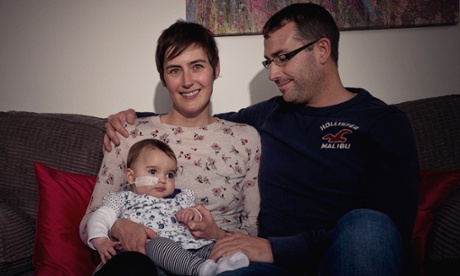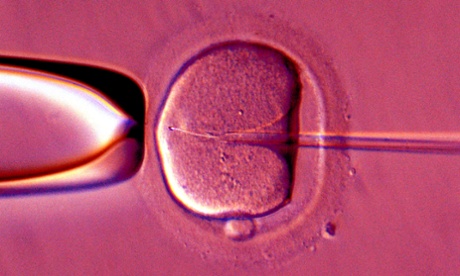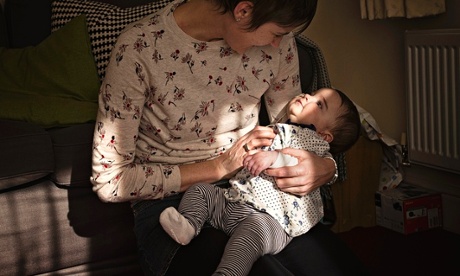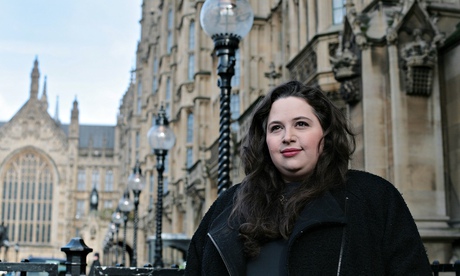MPs will vote on Tuesday in a historic Commons debate that could see Britain become the first country in the world to permit IVF babies being created using biological material from three different people.
Health ministers have indicated they believe mitochondrial donation to stop genetic disease being passed on to babies is an “important scientific advance that holds out great hope for families in this country and around the world”.
David Cameron’s official spokesman said the prime minister was “a strong supporter” of mitochrondrial donation and was expected to vote in favour of the change. “He’s very likely to vote. He certainly wants to take part in this vote and will be very clearly in favour,” he said.
However, up to 60 MPs are preparing to try to delay the motion, arguing it has been rushed. The fiercest critics of the technique argue that it is tantamount to creating “three-parent babies”.
MP Julian Huppert, a longtime supporter of the change, said a number of MPs in favour of the amendment had been trying to make sure their fellow MPs would turn out so it would pass but there was anxiety about whether enough supporters would attend the vote.
“It’s clear when we debated this last year that most MPs were in favour,” he said. “If parliament reflects the public then it will pass easily. My big worry is that MPs decide not to bother showing their faces, which would be a big disappointment.”
Among the opponents, Jacob Rees-Mogg, a Conservative MP, told BBC Radio 4’s Today programme that the proposal was a step down the road towards genetically altered babies.
“At the moment there is a very clear boundary that babies cannot be genetically altered and once you’ve decided that they can, even for a small number of genes, you have done something very profound and then it’s merely a matter of degree as to what you do next.”
There has been a flurry of last-minute lobbying before Tuesday’s vote on mitochondrial donation, which would allow IVF to use biological material from three “parents”.
Last night, a senior MP described the attempt by church groups to get MPs to vote against a change in the law as outrageous.
“It is utterly outrageous in a free society for the churches to tell parents who are in this painfully difficult position that they cannot undergo procedures like this,” said Andrew Miller, chair of the Commons science committee. “It’s irresponsible of the churches to do that.
“We need to keep our eyes firmly focused on the pain and suffering of the families that have seen children die at a young age, or are having to make serious decisions in their lives. Their needs must trump everything.”
The intervention of the church has made some supporters of the policy nervous that it will not pass. As a free vote left to the conscience of MPs, the debate is not whipped and it is taking place at a quiet time for parliament, when many MPs might be campaigning in their constituencies.
Fiona Bruce, a Conservative MP opposing the motion, laid a motion on Monday calling for delay as the house “should not be asked to approve regulations of such ethical significance without a fully informed debate and before the results of the above safety tests are available for consideration”.
At the same time several supportive groups – including the Association of Medical Research Charities, the Muscular Dystrophy Campaign, the Academy of Medical Sciences, the Medical Research Council, the Royal Society and the Wellcome Trust – emailed MPs urging them to back the motion.
“We ask you to support mitochondrial donation, which will give families affected by serious mitochondrial disease a chance of having healthy children,” it said.
“These regulations are the culmination of seven years of extensive scrutiny. There have been independent ethical reviews, three separate reviews of the scientific evidence on the technique’s safety by a specially convened independent panel of experts and an extensive public consultation. Together this has revealed broad support and approval from the public in the UK and scientists from around the world.”
Vicky Holliday, a suspected carrier of faulty mitochondrial DNA who may benefit from mitochondrial transfer in the future, said that critics of the technology needed to catch up with the scientific evidence. Holliday, 38, from High Wycombe, Buckinghamshire, is the mother of Jessica, a baby girl with a fatal neurological condition believed to be the result of mitochondrial disease. She and her husband, Keith Newell, would like to have a second baby, but do not want to take the chance that it may be afflicted with the same condition. Mitochondrial transfer would enable them to replace any faulty DNA Holliday may pass to a child and thus have a healthy baby.
Holliday said: “They have been examining this technology now for so many years and so many scientists have come out in favour of it. There are those who say there’s not enough research, but that’s just not true. They need to catch up with what’s been going on in this field.”
She said she hoped MPs would come out in favour of the technique, which would give parents like them the chance to have a family free of debilitating mitochondrial disease. “We really want this to go ahead, for ourselves and to give families like ours a choice.”
Rachel Kean, who is in her mid-20s and has a family history of mitochondrial disease, said misinformation around the issue was rife. “I find it incredibly unethical to oppose the prevention of suffering and disease through misinformation,” she said. “We are not talking about designer babies, we are talking about the prevention and eradication of cruel and devastating diseases and we have witnessed the impact of those.”
She said she was hopeful MPs would vote in favour: “I am optimistic that those who are informed, reasoned and truly want to help those in the most suffering positions will be in favour of this and because of that it will pass.”













